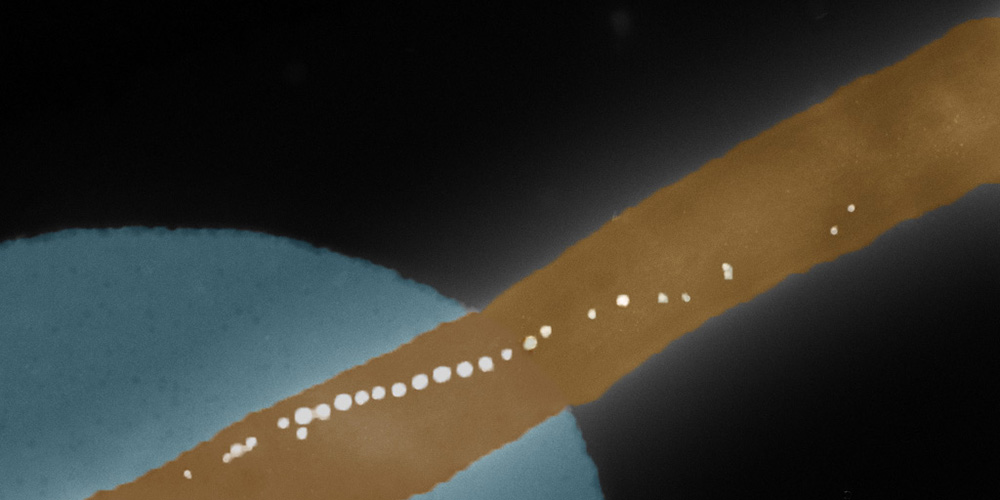PRIMA: A step towards a professorship
Female professors are still underrepresented at Swiss universities. PRIMA is a funding instrument from the Swiss National Science Foundation (SNSF) that provides women with targeted support in their academic careers. Last year, funding was awarded to three female researchers at the University of Basel.
23 March 2020
This February, Dr. Elizabeth Mesok began her research in the Center of Gender Studies at the University of Basel – but the path that led her to this point was anything but straightforward. In 2013, she wrote her doctoral dissertation in American Studies on the role of gender in the US military’s strategy in Iraq and Afghanistan, after which she was offered a postdoc position at Harvard University. Her future plans were clear: she would secure a professorship. But she soon realized that this would be extraordinarily difficult. “Over the years, I sent out hundreds of applications, and I know many colleagues who went through similar experiences,” she explains. “To be honest, we weren’t prepared for the reality of the job market at all.”
Staying in academia
A few years later, personal circumstances brought her to Switzerland – where she also faced a challenging situation when it came to her career. In her quest for a way to remain in academia, she stumbled across the SNSF’s PRIMA funding instrument, which is aimed at outstanding female researchers and supports them on their journey towards a professorship. When the SNSF launched a call for PRIMA proposals in 2017, however, Mesok still wasn’t sure whether academia was right for her – after all, she knew how precarious an academic career could be.
“I was piecing things together, but I wanted something more stable and I felt as though I wasn’t living up to my full potential,” she explains. And so when another call for PRIMA proposals was issued the following year, she made a decision: she would apply in order to be able to continue with her teaching and research. The grants are worth CHF 1.3 million on average, which provides a salary for the researcher and funding for a research project over a period of five years.
Combating “imposter syndrome”
The procedure is highly competitive. Statistically speaking, about 12% of applicants are awarded a grant – the success rate is higher for other funding instruments. In addition, at a year, the application process takes a relatively long time. “Sustaining hope over such a long period of time is really a mental game,” explains Mesok. Simply preparing the application was a very intensive process. “Afterwards, I joked that writing this proposal was harder than my whole dissertation,” laughs the researcher.
Mesok believes it can be difficult for women in particular to combat “imposter syndrome”, in which people constantly question their own abilities. “I’m a feminist theorist and went through the tough job market before I got this position, so this definitely shaped my perspective,” she explains. In her view, grants such as PRIMA are essential – and there’s no doubt that women are underrepresented in academia: “There are a lot of structural barriers to women’s advancement. Grants like these, if used properly, can help to change this situation.”
Seizing opportunities
Mesok takes a realistic view of her current position and the associated career prospects. As with everything else in working life, a professorship is not guaranteed: “But I am beyond grateful for this extraordinary situation I’m in now and for the opportunities it gives me.” Her current research project is devoted to the topic of Gender, War and Security, and examines violence prevention strategies aimed specifically at women.
Mesok is keen to encourage future applicants. “The process is tough, but you get something out of it, even if you don’t get the grant in the end,” she explains. In addition, it’s also important to develop a constructive approach to failure: “Of course, it is easy for me to say that now, as I am sitting here with the grant, but it’s important to recognize that failure can be part of the process” Hope alone does not work, she says – but you still have to try.
Three grants for the University of Basel
In addition to Elizabeth Mesok, two further researchers at the University of Basel received PRIMA grants in 2019: Dr. Anne-Sophie Bories, who is carrying out research into the topic “Le Rire des vers,” and Dr. Daniela Landert, whose project is entitled “The Pragmatics of Improvised Drama Comedy.”
The next submission deadline for PRIMA grants is 1 November 2020. The University of Basel’s Career Advancement Office advises on questions about academic careers and the Grants Office assists PRIMA candidates with the application process.


